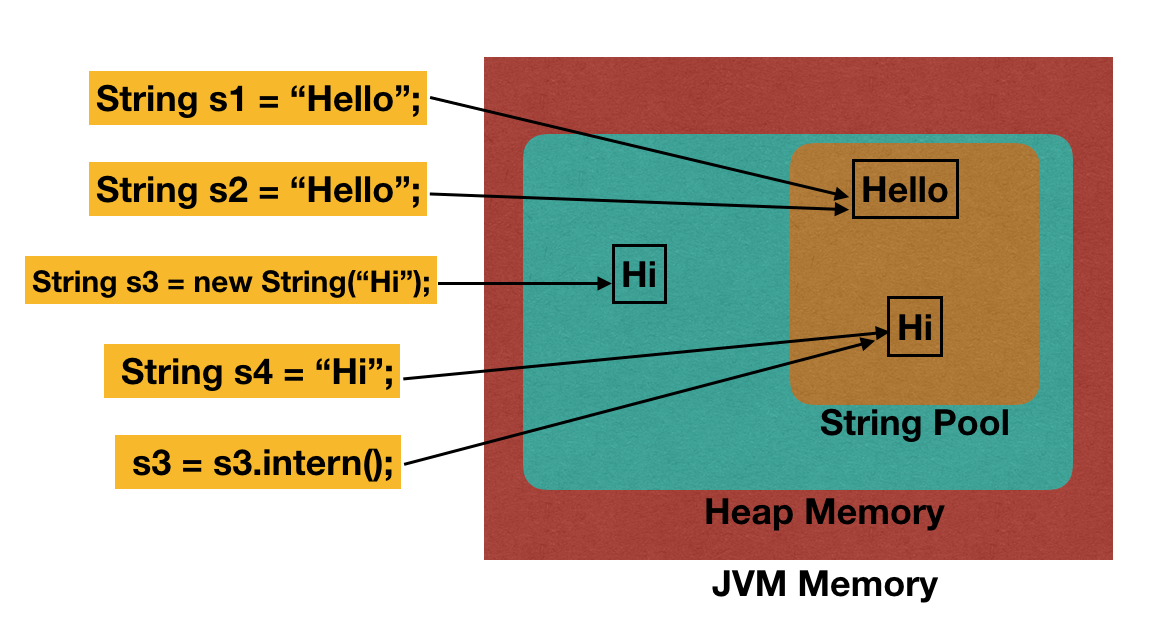Immutable Strings: A Key Element in Ensuring Data Uniformity and Integrity
In the world of information administration, the relevance of immutable strings can not be overemphasized. The concept of immutable strings goes beyond mere triviality; it is a linchpin in the complicated web of information administration.
The Concept of Immutable Strings
Immutable strings, an essential principle in programs, describe strings that can not be customized once they are produced. Essentially, when a string worth is appointed, any operation that shows up to modify the string in fact creates a new string. This immutability makes sure information uniformity and integrity in applications, as it stops unexpected modifications to the initial data.
Advantages in Information Consistency

Data uniformity is critical in various facets of software advancement, including data source administration, multi-threaded environments, and dispersed systems (Why are strings immutable in Java?). Unalterable strings add significantly to accomplishing this uniformity by preventing data corruption as a result of concurrent gain access to. In situations where numerous procedures or threads connect with the exact same information at the same time, unalterable strings act as a protect against race conditions and synchronization problems
In addition, the immutability of strings simplifies debugging and screening procedures. With unalterable strings, designers can trust that when a string is set, it will continue to be the same, making it easier to map the resource of errors and ensuring that test instances generate constant results. This integrity in data handling ultimately causes extra secure and durable applications.

Implementing Immutable Strings
Making certain the immutability of strings calls for a thoughtful strategy to their application in software development. One crucial method is to develop string courses in such a way that prevents adjustments when a string object is developed. By making strings unalterable, developers can improve data uniformity and dependability in their applications.
To apply immutable strings properly, programmers ought to prefer producing new string items rather than changing existing ones. This technique guarantees that as soon as a string is designated a worth, it can not be altered. Furthermore, any kind of procedure that shows up to customize the string ought to develop a brand-new string with the desired changes instead of altering the original.
Additionally, utilizing immutable this article strings can simplify concurrency administration in multi-threaded environments. Because immutable strings can not be transformed after development, they can be safely shared among multiple strings without the danger of information corruption.
Function in Integrity Guarantee
In software program development, the application of unalterable strings plays a vital duty in making sure the reliability of information operations. Unalterable strings, once developed, can not be changed, making sure that the information they represent remains constant throughout the application's execution. This immutability property provides a degree of assurance that the information being processed will certainly not be accidentally altered, bring about unforeseen end results or mistakes in the system.
By incorporating immutable strings right into software program style, developers can boost the dependability of their applications by lessening the threats connected with mutable information - Why are strings immutable in Java?. Unalterable strings help in preventing information corruption or unintentional modifications, which can be especially crucial when taking care of sensitive details or when information honesty is extremely important
Additionally, using immutable strings simplifies simultaneous processing, as several threads can securely accessibility and share string information without the danger of one thread modifying the material while another is reading it. This element contributes significantly to the general dependability of the software system, guaranteeing consistent and predictable actions in information managing procedures.
Applications and System Combination
The smooth combination of immutable strings into various applications and systems is crucial for guaranteeing robust data uniformity and dependability throughout diverse technological atmospheres - Why are strings immutable in Java?. Unalterable strings play a vital duty visit this page in boosting the integrity of information exchanges and interactions within facility software application ecosystems. By including immutable strings into applications, developers can mitigate the threats connected with information meddling, unauthorized alterations, and unintended changes, thereby strengthening the total safety and security pose of the system
In the context of system assimilation, unalterable strings work as a foundational component for establishing safe and secure communication networks and facilitating seamless information transfers in between various components. Their immutable nature makes sure that information transmitted between systems stays the same and proven, minimizing the likelihood of incongruities or errors that might compromise the honesty of the entire system. Furthermore, unalterable strings can boost interoperability between inconsonant systems by offering a standard format for information depiction, allowing extra efficient data processing and exchange methods see across interconnected platforms. By embracing unalterable strings in applications and system combination procedures, companies can strengthen their information framework and support the dependability and uniformity of their information assets.
Conclusion
In final thought, unalterable strings play a crucial function in preserving information uniformity and integrity in various applications and system combinations. By making certain that strings can not be transformed once produced, the honesty of data is preserved, reducing the danger of mistakes and inconsistencies. Carrying out immutable strings can dramatically improve the integrity of systems, inevitably causing more accurate and reliable data processing.

Comments on “Why Are Strings Immutable in Java? Comprehensive Overview for Beginners”